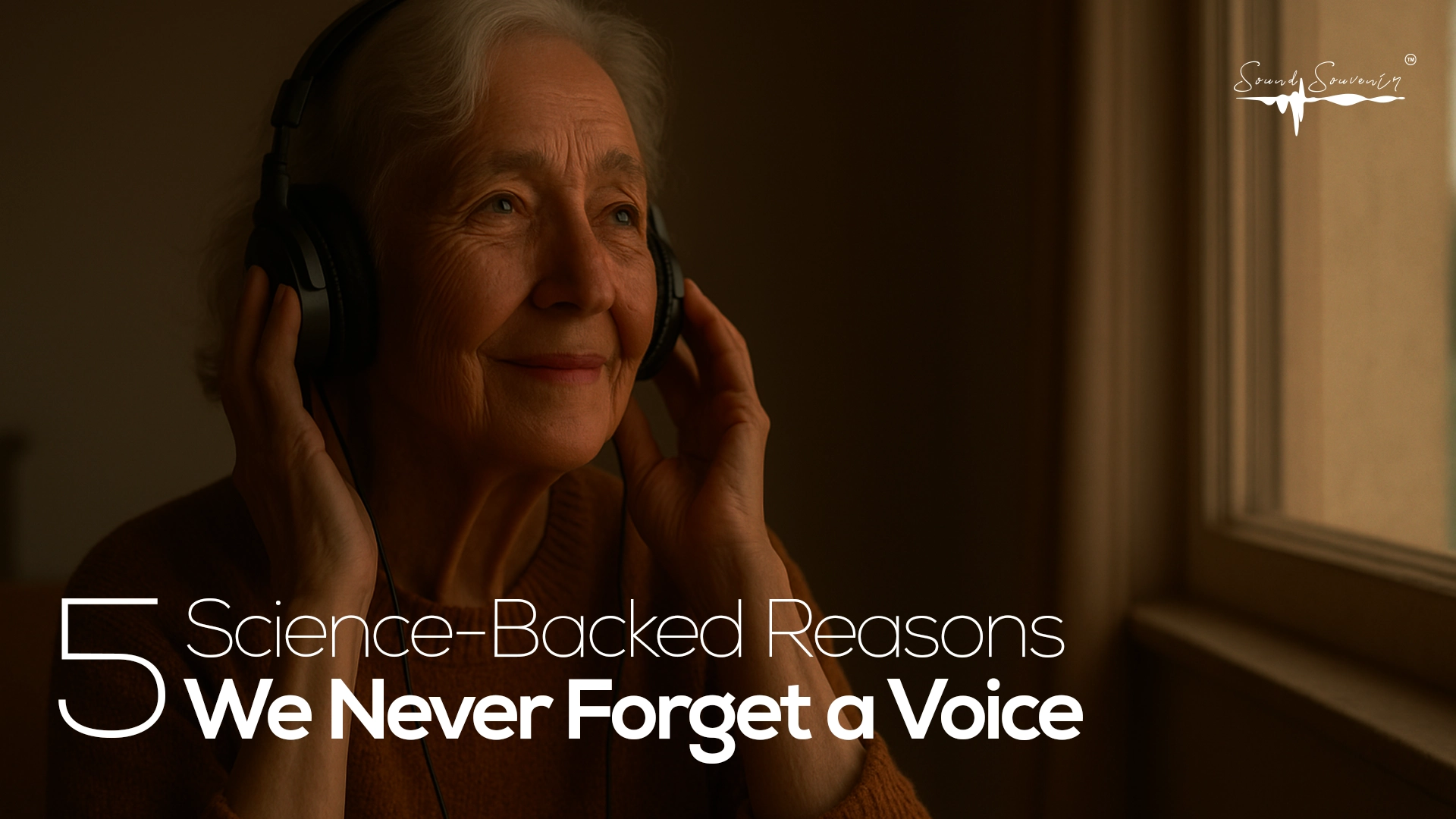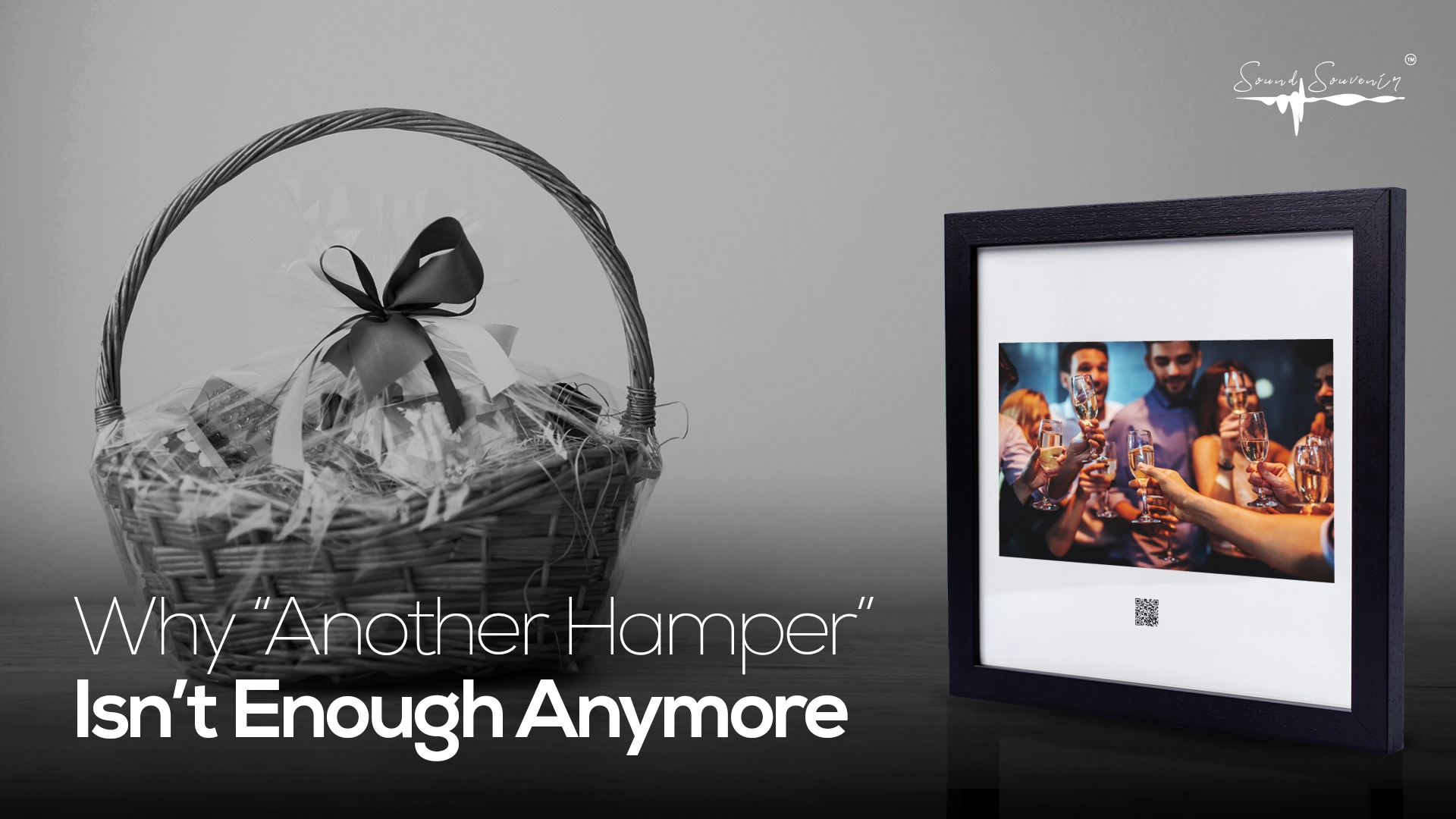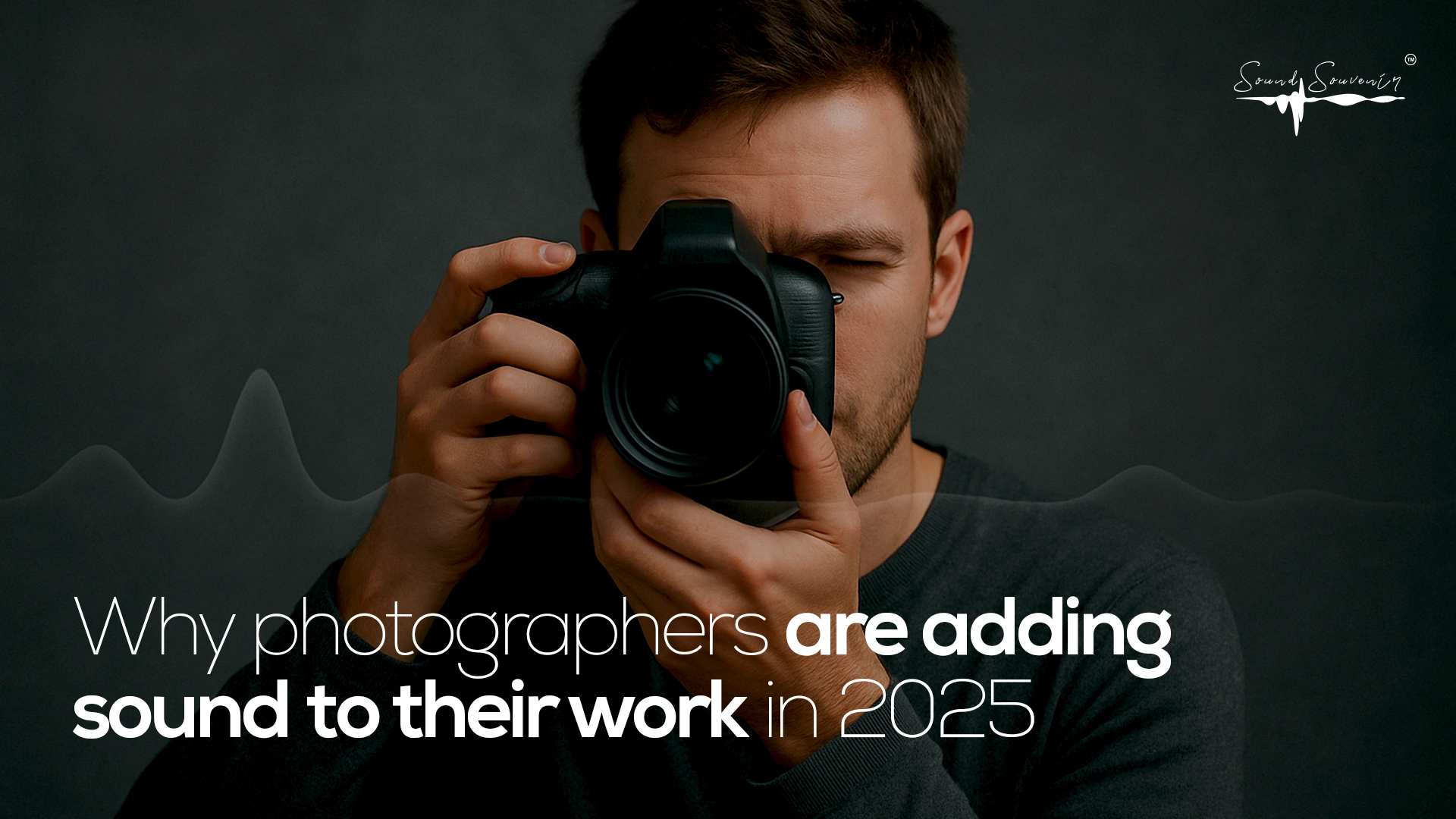Have you ever forgotten how someone looks, yet instantly remember their voice? It turns out there’s solid science behind this phenomenon. In fact, auditory memories often outlast visual ones, and we’re about to explore why. From echoic memory to the memorability of voices, sound has a profound impact on how we remember – and Sound Souvenir embraces that power, enabling people all over the world to create lasting meaningful keepsakes.
Echoic Memory: The Brain’s Auditory Holding Tank
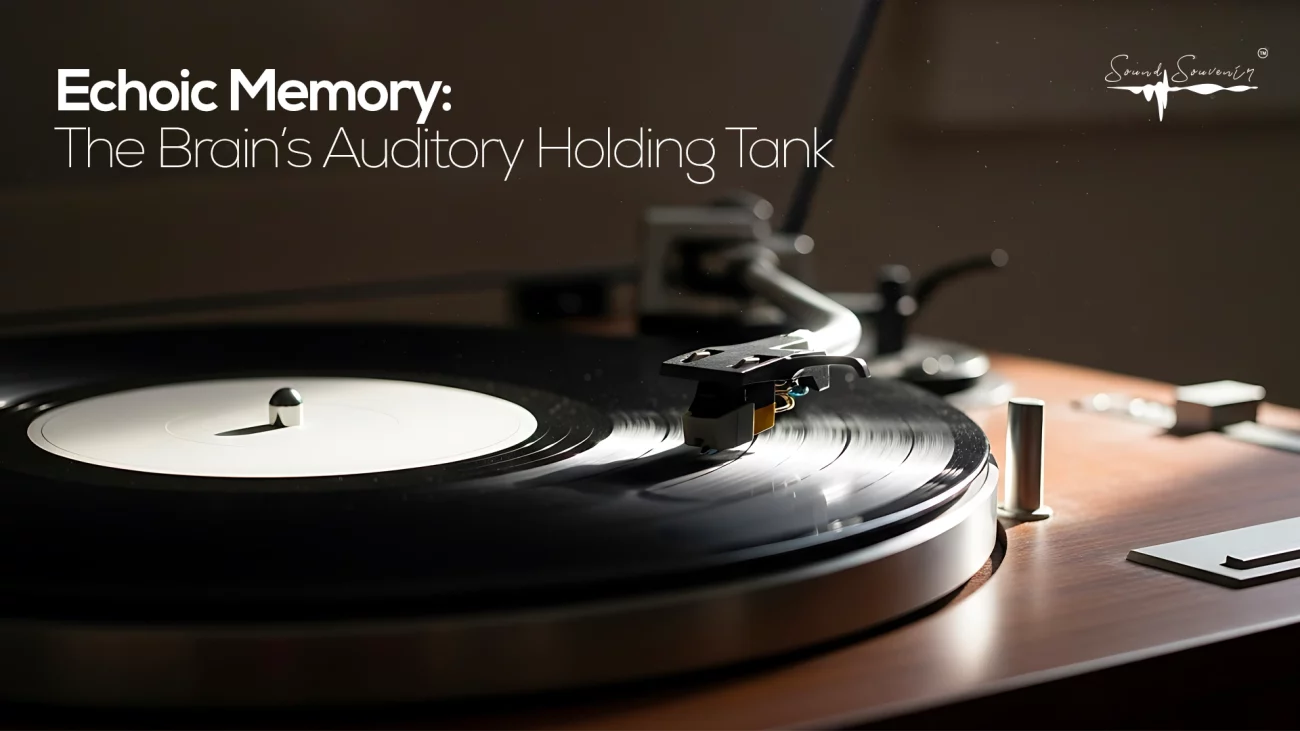
Before diving deeper into higher-level memory, let’s start with how our brain treats sounds:
- Echoic memory is your brain’s way of temporarily holding onto auditory information, it works like a “holding tank” for just 3 to 4 seconds after you hear something Wikipedia.
- While fleeting, this initial storage allows our brain to process and perceive meaning, so when you catch a familiar tune, your brain immediately latches onto it.
Although iconic memory (the visual equivalent) fades almost instantaneously, echoic memory gives our auditory system a head start, making sound more deeply embedded from the get-go.
Voices Are Intrinsically More Memorable
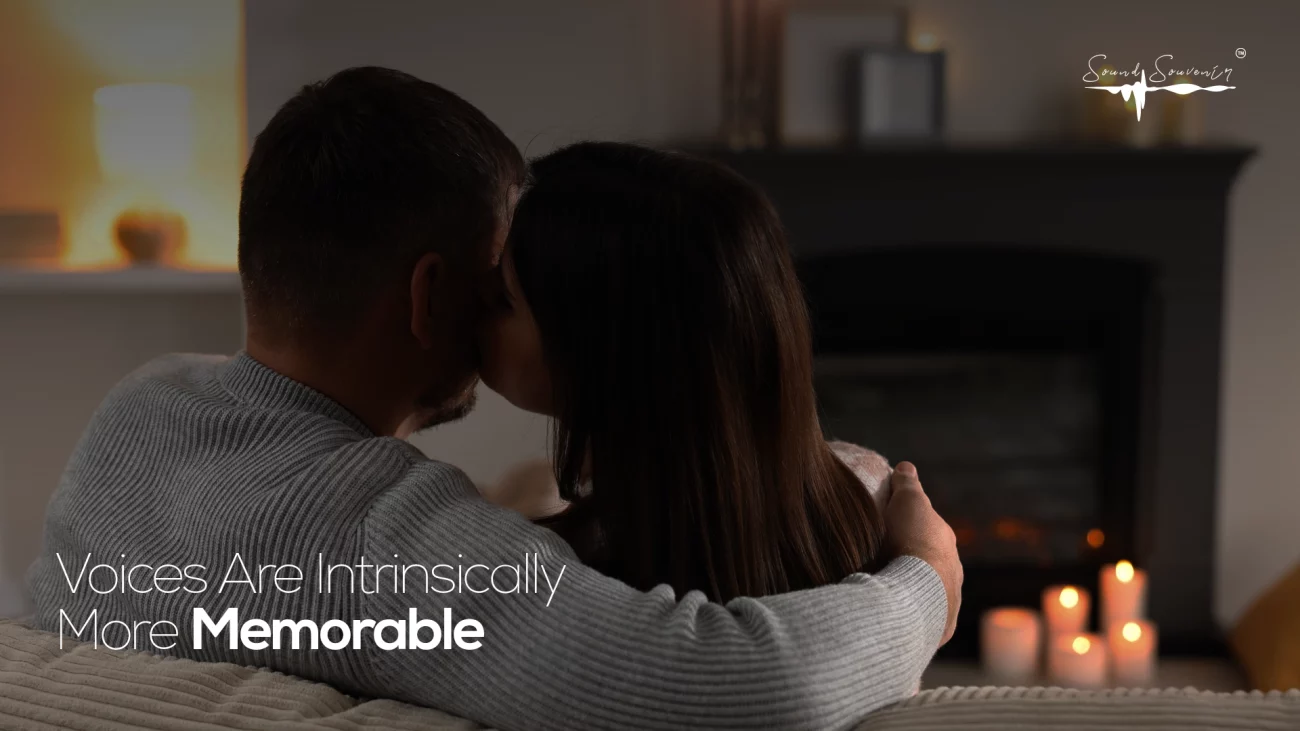
Research by cognitive scientists at the University of Chicago suggests that some voices are inherently more memorable than others, regardless of who hears them Medical Xpress.
- Their experiments had participants listen to random voice clips and press a key whenever they recognised a repeated voice.
- Consistently, certain voices were remembered better across different listeners, indicating intrinsic auditory memorability tied to low-level sound features, not context or appearance socialsciences.uchicago.edu.
This tells us that sound isn’t just processed; it’s felt—and some auditory signatures naturally stand out.
The Brain Responds Differently to Voices vs. Faces
Neuroscience research reveals why voices hit different wires than images:
- The superior temporal sulcus (STS) is activated more by human voices than by environmental sounds Wikipedia.
- This region integrates both visual and auditory stimuli and handles recognition of voices and faces but voice specificity lights up distinct networks Wikipedia.
Essentially, voices trigger dedicated pathways in the brain that tap into memory with high precision, making them powerful anchors for recalling people and moments.
Familiarity: Even Learning Voices Alone Works
We often pair faces with voices, and perhaps feel it’s solely a person’s face we remember them by, but research shows our brains can recognise voices independently:
- In controlled experiments, participants were exposed to new voices without faces, and with just a few exposures, could reliably recognise them later PMC.
- This highlights how potent auditory memory is even without visual exposure.
So whether it’s a loved one’s laugh, your vows, or a song shared at a concert your brain can commit those sounds to memory almost without effort.
The Cocktail Party Effect: We Pick Your Voice Out of Millions
Have you ever heard your name called amid loud chatter? That’s the cocktail party effect and a powerful indicator of why voices matter:
- Your brain can zero in on a single voice—even if there are many competing sounds around Wikipedia.
- Detection isn’t just about recognition it’s about attention and emotional relevance. You hear what matters most to you.
This selectivity isn’t available for visual stimuli; you can’t pick out someone’s face from a blurred snapshot as efficiently as you can a voice in a crowd.
Why This Matters for Memory and Sound Souvenir
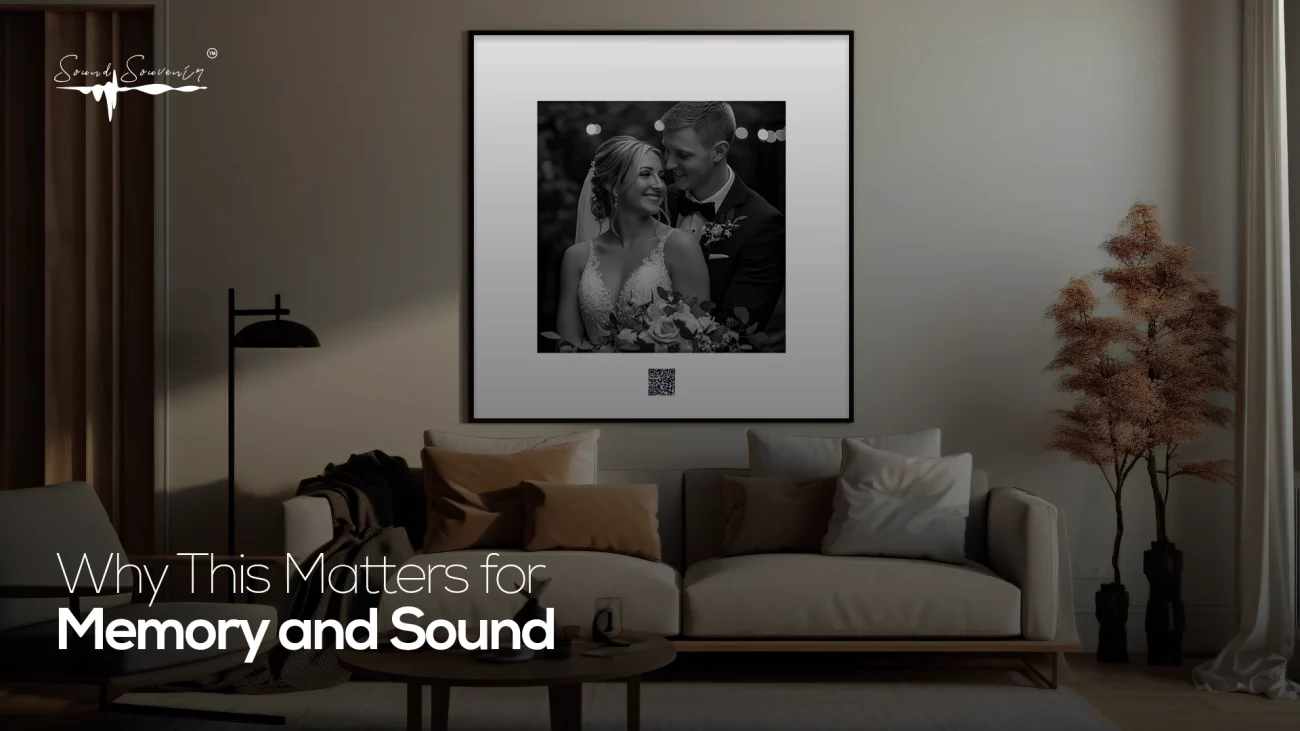
Here’s how these facts come together:
- Echoic memory gives sound a special edge over fleeting visuals.
- Some voices are intrinsically memorable – perfect for lasting keepsakes.
- The STS part of our brain treats voices as powerful emotional triggers.
- Familiarity through sound builds fast, even in isolation from visuals.
- Selective attention via the cocktail party effect gives voices power to persist mentally.
That’s why Sound Souvenir is more than a framed picture. It’s a time capsule through sound, not sight.
Putting It Into Practice
Imagine framing your child’s first words, your wedding vows, or that crowd singing “Live Forever” at an Oasis gig. More than just visuals, these auditory imprints carry you back not just in picture, but in feeling.
Sound Souvenir applies all this science with style:
- Capture the moment – a crowd chant, a voice, a song.
- Frame it in an elegant wooden frame.
- Relive that memory anytime, forever.
After all, faces might fade. Photos might clutter your gallery. But sound? It echoes.
Sound anchors our most powerful memories. Voices shape our emotional landscape. And now, thanks to neuroscience, we know exactly why.
Why settle for photos when you can experience the moment again every time you press play?
